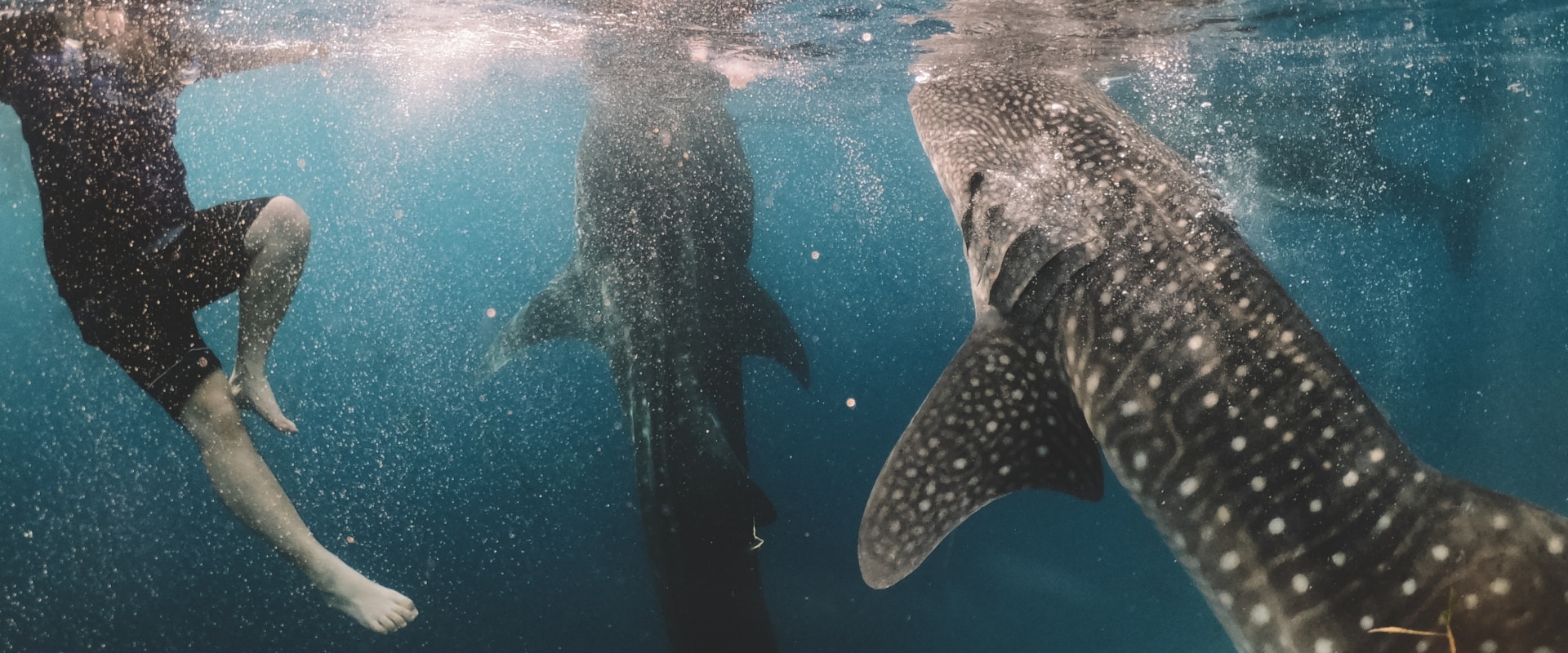Reminder to all scuba divers in the Andaman Sea, as an encounter with whale shark can be anticipated. Whale Sharks (Rhincodon Typus) are named ‘gentle giants’ for being the largest fish (well, not ‘whale’) in the world, bigger that the great white shark for instance. They can reach up to an incredible 12 meters/40 feet in length and 21.5 tons in weight. Whale shark usually roams free in warm, tropical waters across the oceans from Pacific to Atlantic, so we might have a chance to dive alongside them on our Thailand Liveaboard tours.
Whale Sharks are among the top of the bucket lists for scuba divers worldwide. Keep in mind that there are certain precautions to avoid intruding their natural conditions. Here are the 5 most common rules for scuba diving with whale sharks in Thailand.

WATCH, DON’T TOUCH
NEVER touch the whale shark, like, EVER. Although whale sharks are named ‘gentle giants’, touching might scare them away, or worse, they might be stressed and harm scuba divers nearby, including you.
KEEP THE DISTANCE
Maintain a safe distance from a whale shark of at least 3-4 metres, especially to the front and the back. And if they swim straight right to your diving group, you should slowly make way for them to pass through smoothly.
DO NOT BLOCK THE DIRECTION
Sometimes divers could get too excited to spot a whale shark. But still, always make way for them to pass through in their natural direction. Do not try to feed or let any object float in the way either.
NO FLASH OR PHOTO
Never shoot a whale shark with bright flashes, especially at the eye or from below the shark. Although not legitimately proven of the actual effect yet, flashes might harm the whale sharks in some ways.
USE REEF-SAFE SUNSCREEN
Use a sunscreen that’s labelled safe for the ocean. Whale sharks feed on planktons in the seawater, so regular sunscreen might contain harmful chemicals that are not safe for them.
FUN FACTS ABOUT WHALE SHARKS
Whale shark females produce eggs, but the young hatch inside of the mother instead of in the water like most fish. Then, the whale shark females give birth to about 300 live young. Many whale shark babies never make it to maturity, though.
Unfortunately, the global whale shark population has been declared endangered by the IUCN, with their main threat being fisheries, bycatch losses and demand for shark fins, liver oil, skin and meat. Learn more about how you can help protect whale sharks and ensure their species lives forever.
Whale sharks are magnificent creatures that need extra care and protection. Keep these 5 common rules for scuba diving with whale sharks in Thailand in mind the next time you encounter one. Have fun scuba diving in Thailand!
Want to have a chance at a close-encounter with Whale sharks in Thailand? Join KSA Liveaboard trips to the Andaman Sea and see for yourself! BOOK NOW!!
